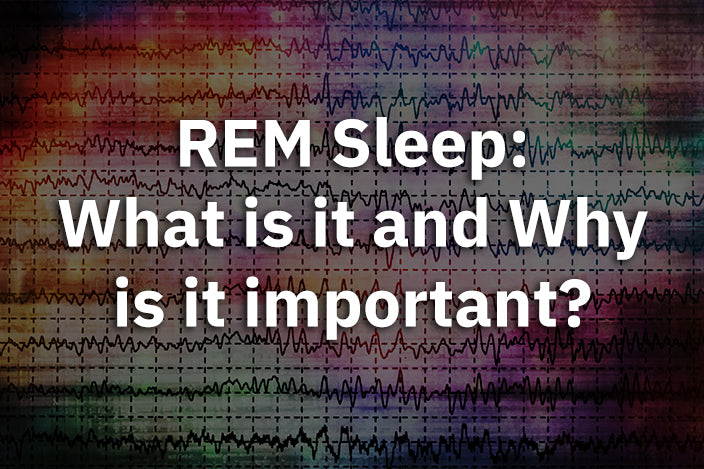Sleep is a necessary and sophisticated aspect of our life that operates in a cyclical fashion. As we sleep, we travel through several stages that contribute to our physical well-being.
REM (Rapid Eye Movement) sleep is a distinct and essential component of the sleep cycle. It is frequently discussed when the topic of sleep comes up because of its unique and multifarious function sleep.
Understanding REM sleep is more than just a scientific endeavor. We can understand insights into its profound influence on our cognitive, emotional, and physiological health by learning more about it.
Rapid Eye Movements
REM sleep stands out from all the other sleep stages because of the rapid eye movements that occur during the stage and which is also what gives it its name. These eye movements, however, are only the tip of the iceberg.
During this stage, the body experiences a faster heart rate, variable breathing patterns, and an upsurge in cerebral activity, which is similar to being awake.
When we think about sleep, such a flurry of activity may seem contradictory, yet it demonstrates the human brain's sophisticated capability even when at rest.

Importance of REM Sleep
When it comes to functional features, REM sleep emerges as a cornerstone for brain processes. During this stage, a large quantity of memory consolidation occurs. This does not only include facts or information — it is the foundation for all abilities we learn, from playing an instrument to learning a new language.
REM sleep also is important in processing emotions. Our brains process, categorize, and make sense of the abundance of emotions we experience on a daily basis. This processing is critical for emotional balance and psychological wellbeing. Furthermore, from a physiological standpoint, REM sleep is a time for cellular renewal, emphasizing its significance in overall homeostasis.
The Science Behind REM Sleep
Researchers have produced a detailed picture of brain activity during the REM phase using modern technologies such as EEG. In contrast to the relatively quiet activity in other stages, there is an increase in brain activity during REM sleep that is comparable to being awake.
Furthermore, during REM sleep, there is an interesting phenomena known as muscle atonia that takes over. This causes a temporary paralysis, a kind of safety mechanism that prevents us from physically acting out the dynamic narratives that play out in our dreams.
Dream are most vivid during REM sleep. The narratives of our dreams provide insights into our subconscious—our hopes, fears, dreams, and memories.
While dreams can occur at any stage of sleep, they are most vivid during REM sleep. Its purpose isn't simply for nighttime entertainment. Our subconscious handles unresolved difficulties, resolves emotional residues, and occasionally even delivers creative solutions through these dreams.
Consequences of REM Sleep Deprivation
Not getting enough REM sleep can have real-world consequences. Cognitive symptoms include decreased alertness, a decline in decision-making ability, and difficulties with problem-solving. It also has a big impact on our emotions. A lack of REM sleep can make people more prone to mood swings, impatience, and a heightened response to stress.
The physiological consequences of REM sleep loss are alarming. It can weaken the immune system, rendering one more susceptible to illnesses. Moreover, metabolic abnormalities may occur, affecting appetite regulation and energy levels.

Tips to Promote Healthy REM Sleep
Increasing REM sleep is about more than just getting enough sleep. Keeping consistency in sleep schedules is critical. We can improve the precision of our internal biological clock by going to bed and waking up at the same time.
The sleeping environment is also important. A sleep-friendly environment—dark, quiet, and cool—can make a significant impact.
Furthermore, dietary choices have an impact on sleep patterns. It is best to avoid stimulants like caffeine, especially close to bedtime. Some supplements, such as adaptogens, have been identified as potential aids in inducing REM sleep and its ensuing advantages.
REM sleep, far from being a mere stage in the sleep cycle, has emerged as an important contributor to our overall well-being. Understanding its multifunctional role and assuring its quality and duration is a path to a happier, more balanced life, not just better sleep.

